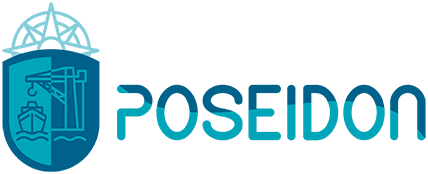Synergic cooperation to achieve effective results
PROJECT PARTNERS
FONDAZIONE SAFE
SAFE is an independent not-for-profit Foundation, founded at the beginning of 2018 in Italy. Thanks to its own funds and by participating to projects funded by the European Union and other international actors, SAFE promotes high-impact research, training and development activities in the security, defence, peace, freedom and fundamental rights sectors. SAFE has an extensive experience in the design and implementation of projects in the security sector, and has already successfully managed and concluded numerous ISF-funded projects. In POSEIDON, as Project Leader, SAFE is responsible for the smooth management and coordination of all partners and project activities (WP1). SAFE will also contribute to the identification of vulnerabilities to corruption and good practices to address them by carrying out the Italian case study research under WP2 and WP3. Last but not least, SAFE will be in charge of POSEIDON’s Networking and Dissemination activities (WP4), leading the setting up of the EU Public-Private Port Stakeholder Network.
Website: https://www.safe-europe.eu
UNIVERSITY OF MURCIA
The University of Murcia (UMU) is an international institution with over a hundred years behind it, although its origins can be traced back to the 12th century. Today, it is home to more than 30,000 students (2,000 of them from abroad), 3,000 researchers and lecturers, and an administration force counting 1,200. The UMU takes part to project POSEIDON through the Good Governance and Public Integrity Chair, which is led by Prof. Fernando Jiménez Sánchez and senior lecturer Germán Teruel. UMU will lead the research focusing on the Spanish case studies and will be directly responsible for the interaction with Spanish Ports supporting this project (Port of Cartagena and Port of Algeciras). The Good Governance and Public integrity Chair brings to the Consortium a track record in successfully linking together public institutions, academia, and the business community in activities seeking to promote a culture of democracy and integrity and help prevent corrupt practices.
Website: https://www.um.es/en
GHENT UNIVERSITY
Ghent University (UGent) and in particular the Institute for International Research on Criminal Policy, a leading criminology research group at the university, has a long track record on justice and home affairs in the EU, international and comparative criminal law and criminal justice, and Belgian criminal law and justice. UGent has spearheaded research on organized crime and drug policies and is using this expertise to contribute to the POSEIDON project. Throughout the lifespan of the project, UGent will be responsible for leading the research related to the Belgian case study, and for engaging the attached supporting partner (the Port of Antwerp) in all relevant activities.
Website: https://www.ugent.be/en
ECORYS
Ecorys is a leading international research and consultancy company, addressing society’s key challenges. Ecorys supports its clients with sound analysis and inspiring ideas, practical solutions and delivery of projects for complex market, policy and management issues. Areas of expertise include security, justice, and migration as well as transport, infrastructure, and mobility. Building on its extensive experience in coordinating EU research projects, Ecorys is leading two Work Packages of the POSEIDON project, Work Package 2: Study on ports’ supply chain in Europe and Work Package 3: Assessment of transferability of identified mechanisms. As part of its work on WP3, Ecorys will be responsible for the design and launch of POSEIDON’s Dashboard, visualising recommendations for an EU Port Supply Chain Integrity Standard.
Website: https://www.ecorys.com
DEMOCRITUS UNIVERSITY OF THRACE
Democritus University of Thrace (DUTH) is a Public University operating 8 Faculties and 20 Schools in four cities of the region of Thrace. During the last 20 years DUTH has realized several thousands of funded projects managed by its Research Committee. Within the framework of these programmes, there has been extensive cooperation with universities, research centers and other bodies in Greece and throughout Europe, as well as in other countries outside Europe. DUTH has participated as Lead/project partner in several EU-funded programmes, such as FP7, H2020, Erasmus+, Jean Monnet Chair, etc. In POSEIDON, DUTH – represented by the Department of Social Policy – will lead the research focusing on the Greek case study and will be directly responsible for the interaction with the General Secretariat of Ports and Port Policy, gaining access to key ports such as Piraeus for data collection, analysis and networking purposes.
Website: https://duth.gr/en
SUPPORTING PARTNERS
EUROGENDFOR
The European Gendarmerie Force (EUROGENDFOR) is a European rapid reaction force composed by several European police and gendarmerie services. EUROGENDFOR is responsible for performing policing tasks within the scope of international crisis management, and has wide range of capabilities in training, mentoring, advising and other kinds of interventions. Within POSEIDON, EUROGENDFOR support in an advisory capacity will grant the involvement of Law Enforcement Agencies from 7 EU Member States (Gendarmeries from France, Italy, Poland, Portugal, Spain, Romania, Netherlands), with availability to access a set of anti-corruption units within these countries to ensure that also national anticorruption bodies are involved.
Website: https://euroge+ndfor.org
PORT OF ANTWERP BRUGES
Port of Antwerp-Bruges is the second largest port in Europe, with more than 300 liner services connecting over 800 destinations, thereby ensuring a worldwide presence. Every year, the port handles around 290 million tonnes of international maritime cargo and it is Europe’s largest site of integrated chemical cluster. The port employs, both directly and indirectly, a total of around 164,000 people and generates added value of more than €21 billion. As such, it is an important lifeline for the Belgian economy. Within POSEIDON, the Port of Antwerp will be subject of the case study research led by UGent, and will take part to all relevant Networking and Dissemination Activities.
PORT AUTHORITY OF ALGECIRAS
APBA – the Port of Algeciras Bay Authority – manages the ports of Algeciras Bay and Tarifa.
APBA is a public organization that belongs to the Spanish Ministry of Transport, Mobility and Urban Agenda, with its own legal status and assets, and full capacity to act. It is governed by the consolidated State Ports & Merchant Navy Act. It represents an intercontinental logistics staging platform and an intermodal benchmark in the Mediterranean. Within POSEIDON, the Port of Algeciras will be one of the two case studies led by UMU, and will take part to all relevant Networking and Dissemination Activities.
Website: https://www.apba.es/en/
PORT AUTHORITY OF CARTAGENA
The Port of Cartagena facilitates Colombia’s foreign trade and global connectivity, thereby fostering socio-economic development in the country. It is a state-of-the-art platform in the Caribbean that provides cargo and passenger ships with port and logistics services. The Organization consists of sea terminals – Sociedad Portuaria Regional de Cartagena (SPRC) and Terminal de Contenedores de Cartagena (Contecar) – and complementary companies that provide port and logistics operation services. As for the Port of Algeciras, the Port of Cartagenas will be the subject of one of the two case studies led by UMU, and take part to relevant Networking and Dissemination Activities.
Website: https://www.apc.es/
GENERAL SECRETARIAT OF PORTS AND PORT POLICY, MINISTRY OF MARITIME AFFAIRS
The Ministry of Maritime Affairs is a government department of Greece responsible for managing the nation’s maritime and shipping sectors, as well as developing policies concerning the country’s numerous islands. This ministry also oversees the enforcement of maritime laws and regulations, and the safety of Greek waters and coasts. Within POSEIDON, the support of the General Secretariat of Ports and Policy will enable DUTH to have access to key ports in Greece for the purposes of data collection and analysis as well as for relevant Networking and Dissemination activities.
Website: https://www.ynanp.gr/en
NORTH ADRIATIC SEA PORT AUTHORITY
The North Adriatic Sea Port Authority, consisting of the ports of Venice and Chioggia, is located at the top of the Adriatic, at the intersection of two European transport corridors (Mediterranean and the Baltic-Adriatic).
It is a terminal for the Motorways of the Sea of the Eastern Mediterranean, and the end terminal for the inland waterway that crosses the Po Valley.
The Ports in the System are multipurpose and their throughput (2023) was about 560k passengers and 25 M tons (with 500k TEUs and 200k vehicles handled).
Website: https://www.port.venice.it/en/

